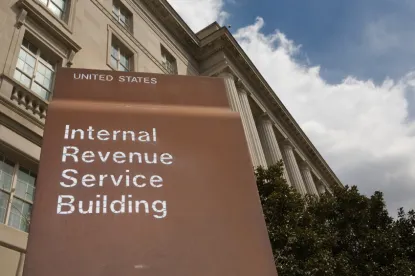Many small to mid-sized businesses are eligible under the existing employee retention credit (ERC) for a 70% tax credit for wages paid to employees through the end of 2021. However, the infrastructure bill – as passed by the Senate – would end the ERC for wages paid after Sept. 30, one quarter earlier than the existing Dec. 31 end date for the credit. If the infrastructure bill is passed by Congress with this early termination of the ERC, it could be a problem for those businesses that have planned budgets based on receiving the credit through the end of 2021, and that may already have monetized the credit for wages paid beginning Oct. 1. Consequently, a business otherwise eligible for the ERC for wages paid during the fourth quarter of 2021 should wait until it is known if the ERC program will be terminated early before beginning to monetize the credit as they pay wages, as allowed under the current rules.
The 70% refundable tax credit for wages paid (up to a maximum of $7,000 per employee per quarter) may be claimed quarterly in 2021 by an eligible business (one with 500 or fewer full time employees in 2019) if the business will have a greater than 20% reduction in gross receipts for the quarter, compared to the same quarter in 2019. See April 2021 GT Alert for details. However, if the infrastructure bill becomes law with the early ERC termination provision intact, there would be no credit for wages paid beginning Oct. 1.
Exacerbating this problem is a company’s ability to monetize the credit every payroll period. The ERC is claimed on the Form 941 quarterly payroll tax return, but the rules allow a business to monetize the credit early by holding onto the federal payroll taxes withheld from its employees’ wages, rather than depositing this money with the IRS. For example, if a business pays $100,000 in payroll on Oct. 15, and assumes that the credit will remain intact for the fourth quarter (thereby expecting a credit of $70,000) and withholds $20,000 in payroll taxes from its employees, it can retain the $20,000 of withheld payroll taxes as a partial payment toward the $70,000 credit, rather than depositing these funds with the U.S. Treasury as otherwise required. As a result, some businesses likely will not deposit their tax withholding obligations in anticipation of receiving the credit. However, if the ERC program is terminated early by the infrastructure bill, the businesses will need to pay back the payroll taxes retained to monetize their anticipated credit. Furthermore, there is a 10% penalty for a company’s failure to deposit payroll taxes withheld from employees. Although this penalty is waived under the current ERC law for taxes not deposited in anticipation of receiving the credit, it appears that this penalty waiver might not survive for the fourth quarter if the ERC program is terminated early. It is possible the IRS might provide penalty relief in this situation, but it has not yet indicated whether it would do so if the ERC program is terminated early.
In addition, in a worst-case scenario where a business retained payroll taxes in anticipation of receiving the ERC, but the credit is terminated early by the infrastructure bill, and the company is unable repay the IRS for the post-Sept. 30 payroll taxes it retained, certain officers, directors, or employees of the company might be personally liable for such unpaid payroll taxes.
Whether this early ERC termination provision remains in the infrastructure bill that will ultimately be signed into law is conditioned on political negotiations, so whether this tax credit program will end early, or whether it will continue through Dec. 31, is uncertain at this time. As a result, a small to mid-sized business eligible to claim the ERC under existing law may wish to assume that that ERC program will be terminated effective Oct. 1, and to deposit all taxes withheld from their employees’ wages, rather than retaining the withheld tax as an advance payment of the ERC. In the event the final version of the infrastructure bill does not terminate the ERC early – so that the credit remains intact for wages paid through Dec. 31 – the business could request an advance payment of the expected credit by filing an IRS Form 7200 “Advance Payment of Employer Credits Due to COVID-19” to receive payment for the credit without having to wait until it files its quarterly payroll tax return. Patience in not monetizing the credit early may be the prudent course of action until it is known whether Congress will end the ERC program early.



 />i
/>i
